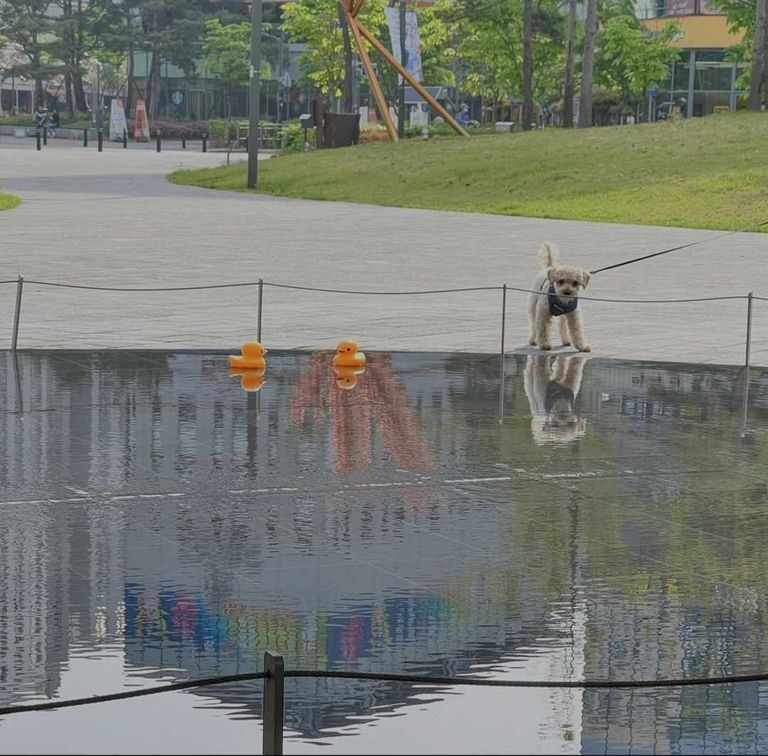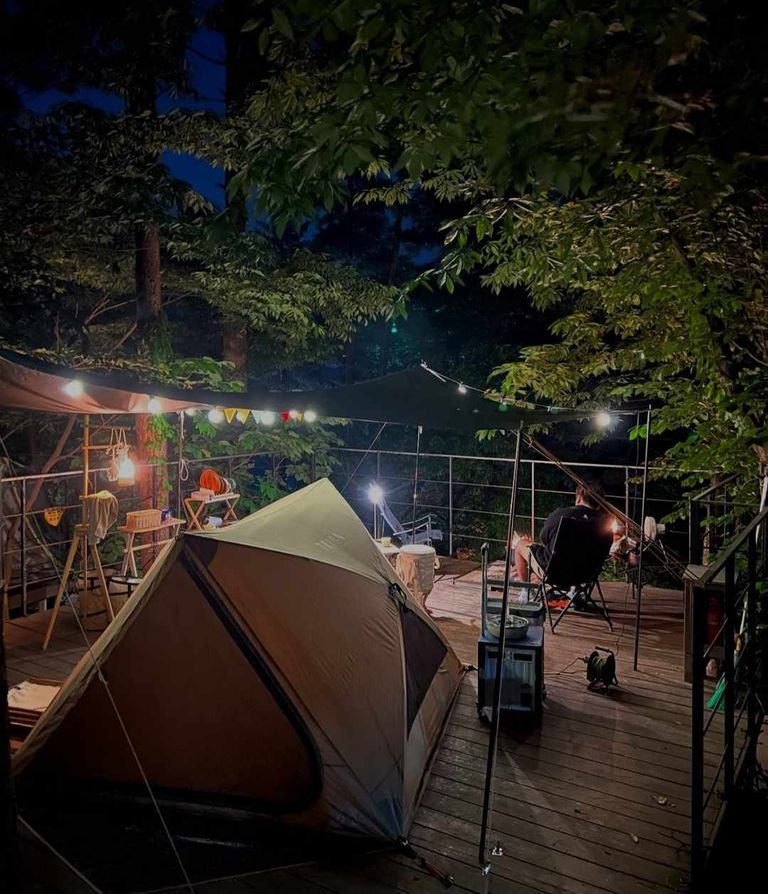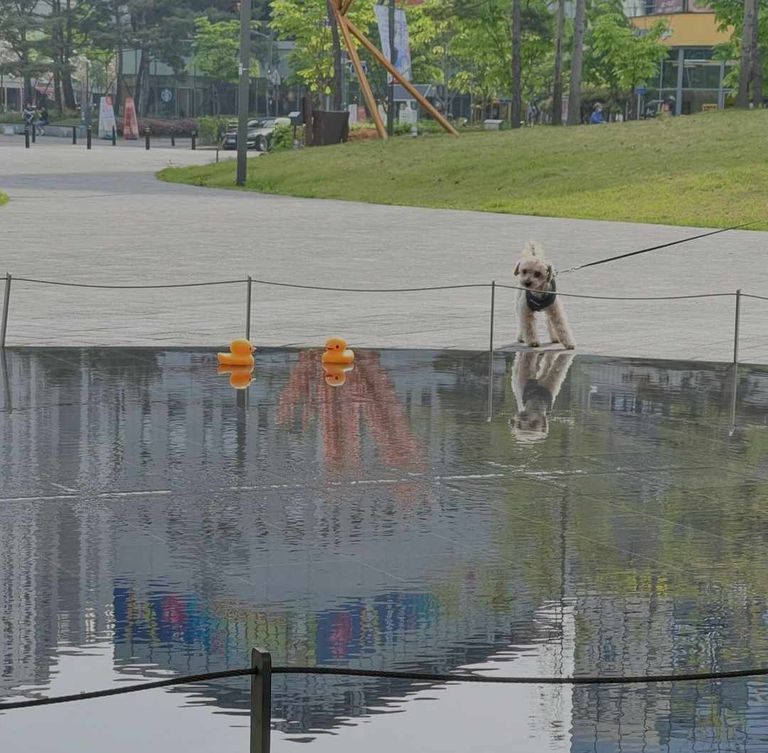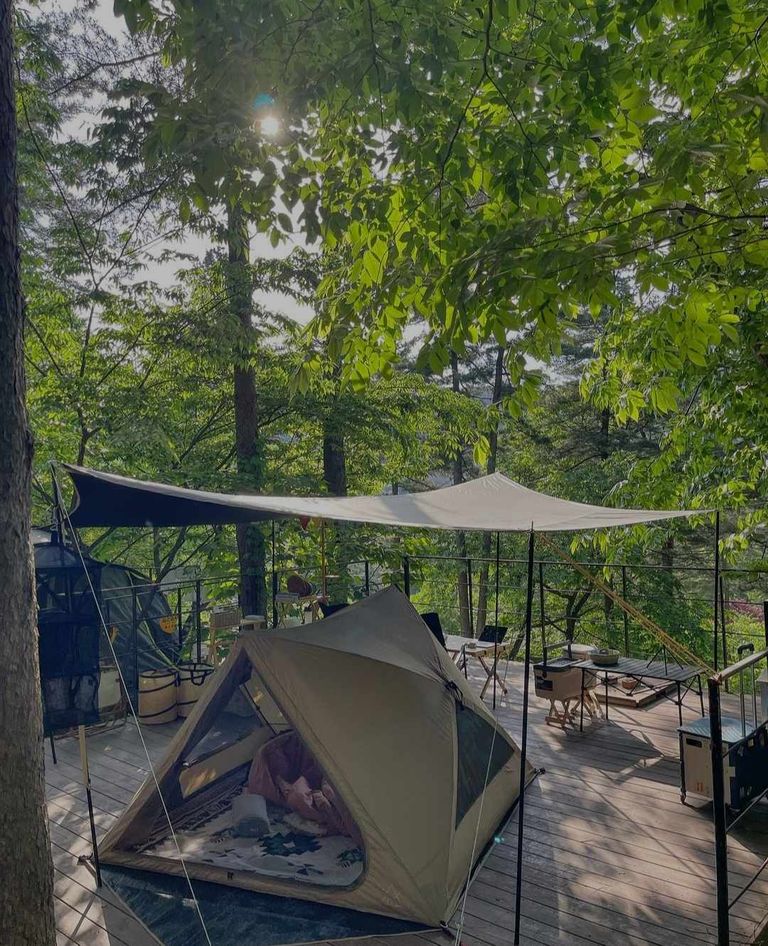
How to go camping with dogs, 100% stress free
Dog camping can be one of the best ways to enjoy the outdoors together - and one of the most dangerous. Here are our best tips for keeping your partner safe and preventing them from running off into the woods or nature. With the arrival of warm weather, you can consider taking your friends for runs, hikes - or even camping in nature. What better company than that of our four-legged friends to explore the forest, wander in mountain streams, enjoy a starry night around a fire or sleep in a tent? Camping with a dog is one of the most fun and rewarding experiences you can have. And even with all that fun, it only takes a few seconds of indiscretion on your part for your partner (or friends) to run out of your yard and cause injury, poisoning - or lost, far from safe.

So here are our best tips for camping with a dog and getting back on track. (What should you consider if you want to go camping with a dog?)
For many of us, camping trips take us out of our comfort zone. The same goes for camping with dogs: the personality of your friends, level of work, age and education can play a role in whether you will have fun together... or you will come home swearing that you will not take. they are with you again!

Because, for example:
Will your dog get excited about the new sights, sounds and smells of camping? Is your dog social with other dogs?
Is one of your dogs barking all the time? (It's a way that doesn't matter to give all other visitors!)
Does your dog respond to social identity as it comes, sit down and stay? These words help make your dog manager in an exciting area. Are your friends younger? (You know how fussy puppies can be - and a pile of mouthy puppies can be a nightmare.)
Are your friends older than you? Older dogs can do well on easy walks and need frequent breaks. You will also find it helpful to assess your dog's activity level and whether he still has his hunting instincts.
Because it means that:

Active, high-energy dogs just need exercise to "relax" by your side (safely) at the end of the day. (Otherwise, they can still get violent in the middle of the night!)
If your dog is descended from an ancient hunting dog, you should take into account its hunting instincts. In other words, his instinct to hunt "meat" or small game. <img draggableAll these things can make your friends run into the forest, run away from you so that you can't be saved. In addition, before you go camping with the dog, we recommend that you ...

Visit a doctor before you travel
Before your trip, be sure to get the green light from your veterinarian first. It's always a good idea to make sure your friends know about their vaccinations, especially for malaria. It is always possible that your dog will encounter wild animals that can transmit rabies.
Dog camping means they are covered in mosquitoes, which means they are at risk of getting heartworms. Puppies are not fully vaccinated until they are 5 to 6 months old, so wait until that age before taking a puppy camping. Make sure your friends are easy to find.
Camping with a dog means billions of opportunities for your friends to venture into uncharted territory — and possibly end up:

don't forget,
injured,
Or even poison when they eat something they shouldn't have! (Either in nature or in a nearby haystack.)
This is why we recommend making your dog easy to identify. A collar with an ID tag is always good practice, especially if it includes your contact information. And if you plan on camping off-grid where cell service is poor, consider microchipping your dog. In less than 10 minutes, a veterinarian can painlessly implant one under your dog's skin, where it contains all of your contact information.
Now, if someone finds your lost dog, they can take it to a hospital or shelter, where staff can scan it for a microchip, find your contact information and contact you for a training visit. 'your garden.

The next step is to pitch your tent in the park and spend time together inside. Train your dog in a tent and put their bed and their favorite toys inside to make them feel at home.
If your dog has not slept outside, get them used to sleeping outside. Take a few naps together in the hamper. If your friends can ignore all the distractions and stay by your side, they can make for a great camping experience. Socialize with people and other dogs on walks or at the dog park. In addition to helping your friends develop their social skills and learn how to behave, it can also help them prepare well for camp life. Once your dog is comfortable in the tent, move on

or may bark and make any noise at night. (A few sprinkles of fresh air in the tent may help.)
By gently guiding your dog into the tent and giving praise together, your friends can learn to love camping!
Familiarize yourself with the terrain before camping with your dog
Before your camping trip, research your destination. Will you be spending most of your time outdoors, sightseeing around town or visiting family?

If you plan to do a lot of hiking, build up your dog's endurance by going for long walks every day. Traveling with a dog is another fun activity that will help you get used to it.
If your dog is old or has health problems, plan to adjust your daily routine according to his needs. Things to keep in mind when choosing an eco-friendly accommodation
Camping has become very popular recently, so planning ahead is not only smart, it's essential for a stress-free trip. Not all parks allow dogs, so be sure to go ahead and reserve your dog-friendly park ahead of time to avoid disappointment. State or local parks, and national forests may allow dogs.

The national parks of the United States do not allow pets in the backcountry, so you may not be able to travel with your pup, but pets are allowed in some open areas of the national parks. Many nature reserves restrict the presence of pets to protect sensitive areas or endangered species. Be sure to check these rules before you go to avoid any unpleasant surprises. Keep the "unwritten rules" in mind when camping with dogs
Your website may have a list of rules for camping with your pet. But there are unspoken rules and expectations for your dog at a campsite, especially when it's crowded and busy, like in the summer.

Leash rules. Almost all pet-friendly shelters require dogs to be on a leash at all times, and leashes must not exceed six feet in length. No one wants your stray dog to lose their burgers or trail mix!
Always ask your dog before letting him approach other people or other pets in the yard. As hard as it is to believe, not everyone likes dogs - and not all dogs (or their owners) like to be approached!
Quiet time at the park is usually from 11am to 7am - which also applies to your dog. If your friends tend to freak out at small events or unexpected noises, be sure to let them out of this habit before you go camping! Never leave your dog alone while camping
It is forbidden to leave your dog (or dogs) alone on your site. Your dog will have easy access to the local wildlife.

Children can approach. Dogs are often confused, which can lead to injury.
If you tie your dog while you are resting or preparing food, make sure that it cannot enter the footpath where people can pass. You can also try leaving your puppy in the car or RV while you enjoy the trip. But cars can be too hot for animals, even with the windows out. It is better to have them when you are on the forest road.

And if your friend finally pulls his leash and runs off... Pay close attention to what your dog eats while camping.
Whether it's extra food or nibbles provided by other campers, or something they found in the woods, it's always a good idea to check every meal your friend eats while you're away. camping. Camping foods, such as trail mix, for example, may contain ingredients such as chocolate or raisins, both of which can be toxic to dogs.
There is always a risk that one of your children (or someone else) will pass on unwanted food to your friends. This can bring you to the hospital if it is onions, garlic or mushrooms, or other vegetables that are not good for dogs.

If you have a dog (or dogs) who are particularly motivated by food, there is nothing stopping them from attacking other plants and making themselves a problem by asking for food. Your dog may even blow up road bombs or other prohibited food in the forest, which (if damaged) can also make them sick. So make sure you are the only one feeding your dog, so you know exactly what he is eating at all times.

Set strict boundaries with other campers about any treats or food you give your dog (or dogs), especially if you don't know 100% what their ingredients are. What equipment do I need when camping with my dog?
Planning ahead means packing all the necessary gear for you and your dog to have a nice and enjoyable trip. This includes determining:
Where your dog should sleep
How to keep them safe and walking
What to do if one or more of your dogs are injured
How to keep your dog happy while camping
And most importantly: how to find your dog if they end up running